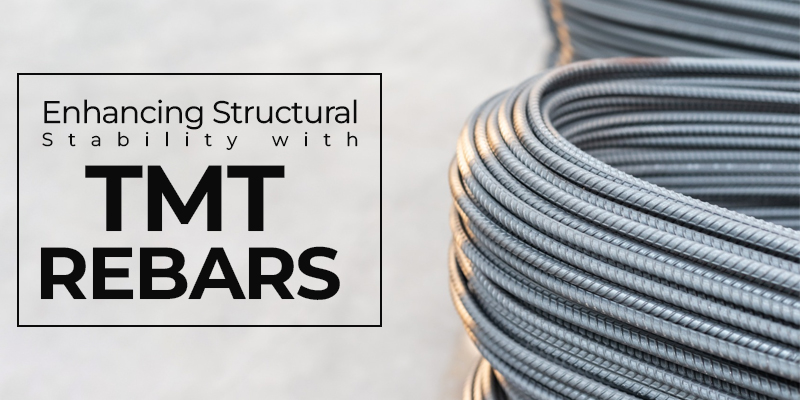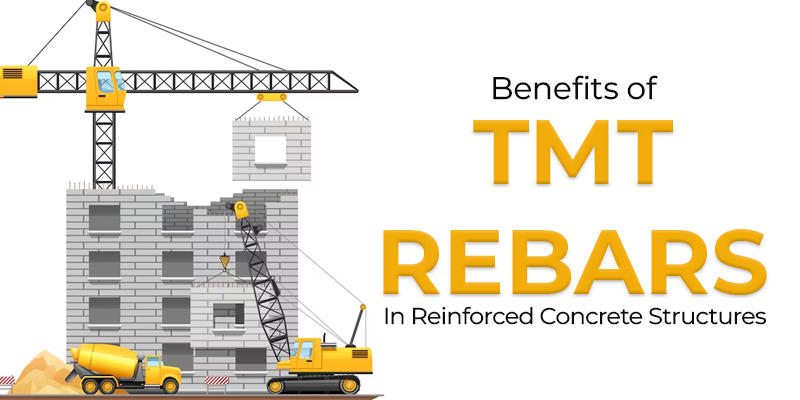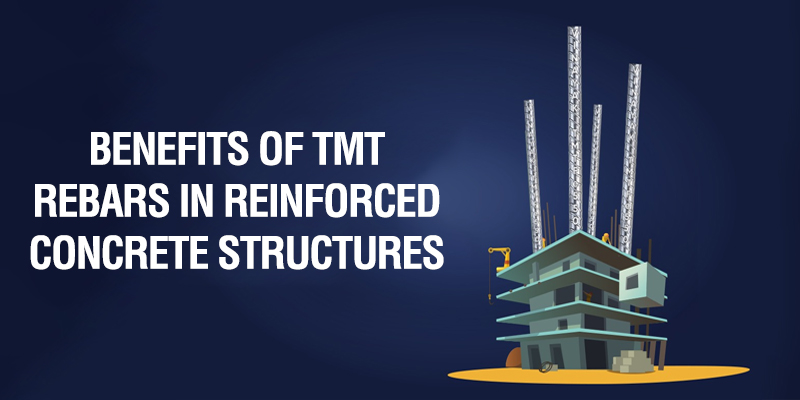TMT (Thermo-Mechanically Treated) rebars have become a preferred choice for reinforcing concrete structures due to their ability to enhance structural stability and integrity. This blog explores the benefits of TMT rebars in enhancing the durability and safety of buildings, bridges, and other infrastructure projects. By understanding their unique properties and advantages, engineers and construction professionals can make informed decisions to ensure long-term structural stability.
Superior Strength and Load-Bearing Capacity
Steel dealers believe that the TMT rebars are renowned for their exceptional strength, which significantly enhances the load-bearing capacity of reinforced concrete structures. The hot rolling process and the resulting refined microstructure make TMT rebars stronger than conventional reinforcement bars. This increased strength allows the rebars to withstand heavy loads and distribute stress effectively, preventing structural failure. The superior strength of TMT rebars ensures the stability and longevity of structures, even in demanding conditions or high-load applications.
Enhanced Ductility and Flexibility
Structural stability goes beyond just strength. The enhanced ductility of TMT rebars allows them to deform under stress without sudden failure. This property is particularly important in areas prone to earthquakes or other dynamic forces. TMT rebars exhibit controlled deformation, absorbing and dissipating energy during seismic events. Steel dealers in Chennai say that their flexibility reduces the risk of brittle failure, ensuring that structures remain intact and resilient. The ability of TMT rebars to undergo controlled deformation enhances the overall stability and safety of buildings and infrastructure projects.
Corrosion Resistance and Durability
Corrosion is a common challenge in reinforced concrete structures, jeopardising their structural integrity and stability. TMT rebars address this issue with their remarkable corrosion resistance. The manufacturing process, including quenching and self-tempering, forms a protective oxide layer on the surface of the rebars, preventing the penetration of moisture and corrosive elements. This corrosion resistance extends the lifespan of the rebars and the overall durability of the structure, reducing the risk of deterioration and maintenance requirements.
Compatibility with Concrete and Construction Techniques
TMT rebars are compatible with various concrete types and construction techniques, making them versatile for different projects. JSW steel dealers in Chennai believe that they exhibit excellent bond strength with concrete, ensuring effective load transfer and structural integration. TMT rebars also facilitate efficient construction practices, such as the use of mechanised tools for cutting and bending. This compatibility enhances the construction process and allows for optimal reinforcement placement, further improving structural stability.
Compliance with International Standards and Codes
TMT rebars comply with international standards and codes related to quality and safety. They undergo rigorous testing to ensure they meet specific requirements for strength, ductility, and corrosion resistance. By using TMT rebars that adhere to these standards, engineers and builders can have confidence in the structural stability and integrity of their projects.
Steel suppliers conclude by saying that the TMT rebars play a vital role in enhancing the structural stability and integrity of buildings, bridges, and infrastructure projects. Their superior strength, enhanced ductility, corrosion resistance, and compatibility with construction techniques contribute to long-term durability and safety.



